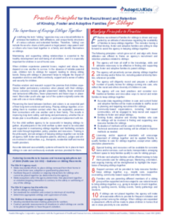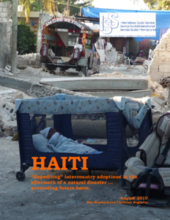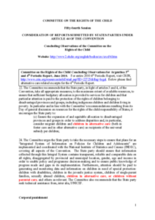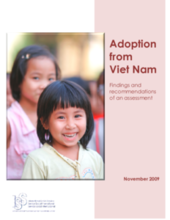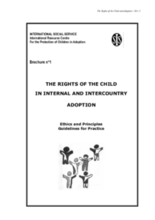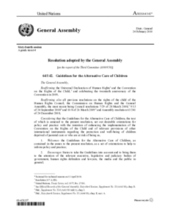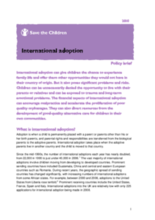Displaying 591 - 600 of 661
This resource offers principles to frame an agency's foster care recruitment and retention practices related to siblings.
This report examines the impacts of HIV on the care choices of children, exploring how HIV affects whether or not children can remain within parental care, and on the alternative care options open to them.
Using a range of intergovernmental, governmental, nongovernmental and media sources, this report compiled by International Social Service constitutes an unprecedented effort to document, and draw preliminary conclusions from, the course of events related to intercountry adoptions from Haiti in the first half of 2010
In June 2010, the Committee on the Rights of the Child issued its Concluding Observations to countries reviewed during the Committee's 54th session. This brief summarizes the UNCRC observations regarding alternative care.
This paper is based on The Latin American Report: The situation of children in Latin America without parental care or at risk of losing it. Contexts, causes and responses, which was prepared using reports from 13 countries in the region. The paper gives an overview of the state of one of the most fundamental rights - the right to parental care, a keystone for the right to live in a family and a community.
Independent assessment of the situation of Intercountry adoption in Vietnam.
Defines the ethics and principles that should govern adoption.
The Guidelines for the Alternative Care of Children were endorsed by the United Nations General Assembly on 20th November 2009, in connection with the 20th anniversary of the UN Convention on the Rights of the Child.
Brief recognizes the potential opportunities ICA can provide a child but examines the problems and risks frequently associated with the practice.
Discusses risks associated with using adoption in emergency settings. Additional consideration given on where adoptions can be safely and appropriately facilitated for children with adoptions underway prior to the earthquake.

